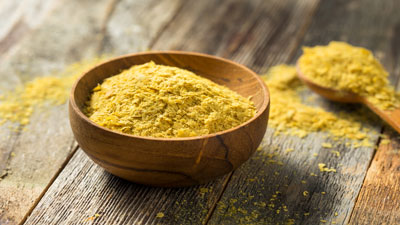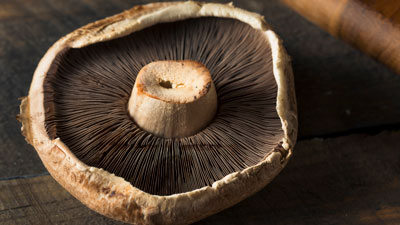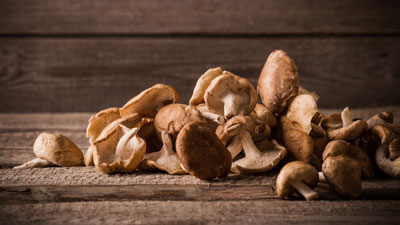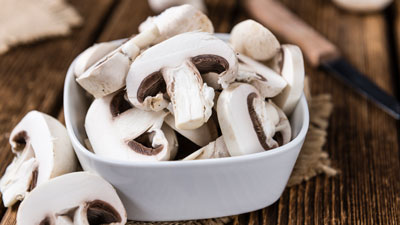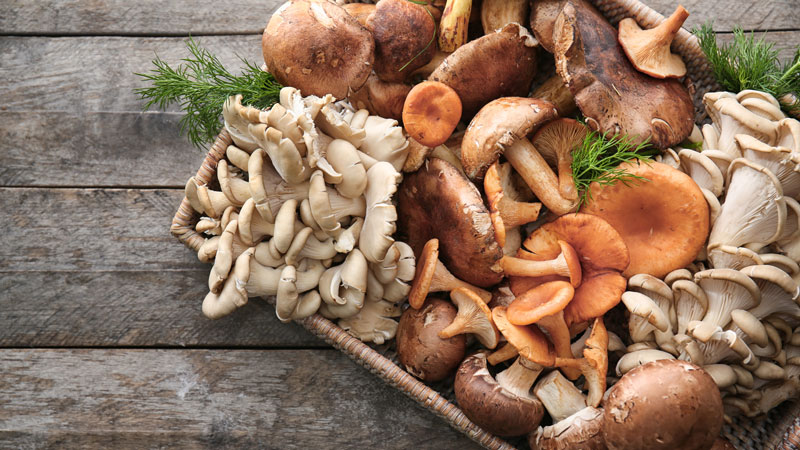
Both mushrooms and yeasts belong to the fungi family. Fungi are not plants since they don’t produce chlorophyll and they don’t get their nutrients from the sun. Instead, they are their own category, and they get their nutrients from decomposing matter in the ground. That being said, when it comes to food, fungi are a very important component of a whole-foods, plant-based diet.
The difference between mushrooms and yeasts is that yeasts are a single-celled organism while mushrooms are multi-cellular organisms with a stem and a cap. There are over 14,000 mushroom species identified so far, out of which 2,200 are edible. Many of them are used for medicinal purposes, and those that are not are still highly rich in nutrients.
Mushrooms add a delicious layer of flavor and texture to our meals. Their texture can make them a great replacement for meat during the initial transition into a whole-food, plant-based diet. Their flavors vary according to their species, but mushrooms are also great sponges that can absorb additional flavors from herbs, spices, or broths.
Top Nutrients in Mushrooms and Yeasts
Speaking of absorption, there’s something else mushrooms are great at absorbing: UV light from the sun! And then, they produce their own vitamin D. This makes them the only potential plant-based source of this nutrient. However, most commercial mushrooms are grown in greenhouses and therefore have not been exposed to the sun and do not carry any vitamin D. There’s something we can do, though. If we expose our store-bought mushrooms to the sun without a window in between, they can then produce vitamin D before we eat them.
In general, mushrooms and the now famous nutritional yeast (nooch) are packed with vitamin B2 or riboflavin, B3 or niacin, B5 or pantothenic acid, and B6 or pyridoxine. Plus, they are rich in copper, phosphorus, potassium, and selenium. This means that mushrooms and nooch are great for our metabolism, our brain, our children’s early development, our red blood cells, our cells in general, our reproductive health, our thyroid, and even for our hair and skin. Mushrooms and yeasts also contain prebiotic beta-glucan (a type of soluble fiber) which stimulates our immune system and helps us remove PFAS from our digestive tract. Plus, they are rich in other phytonutrients that give them strong anti-cancer and antiviral properties. They even help us relieve stress!
Mushrooms should always be cooked before we eat them to significantly reduce their agaratine content, a substance that is potentially carcinogenic.
Fungi Nutrition Interactive Pages
Check out our first fungi interactive pages and try our personalized fungi nutrition calculators to see how much nutrition your and your loved can get from each variety. Subscribe to our newsletter and be the first to know about our latest content additions!
References

